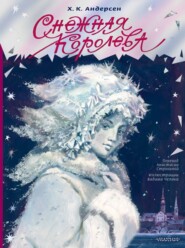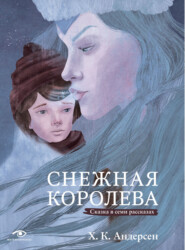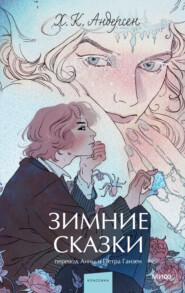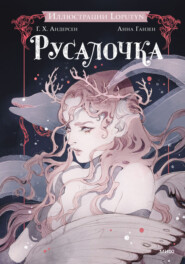По всем вопросам обращайтесь на: info@litportal.ru
(©) 2003-2024.
✖
The Sand-Hills of Jutland
Настройки чтения
Размер шрифта
Высота строк
Поля
It seemed as if sleep had fled from her for ever; it alone would be her best friend, strengthen her frame, and recall peace to her mind. Her family persuaded her to keep her bed, and she lay there as still as if buried in sleep. One night her husband had listened to her breathing, and believing from it that she had at length found repose and relief, he clasped his hands, prayed for her and for them all, then sank himself into peaceful slumber. While sleeping soundly he did not perceive that she rose, dressed herself, and softly left the room and the house, to go – whither her thoughts wandered by day and by night – to the grave that hid her child. She passed quietly through the garden, out to the fields, beyond which the road led outside of the town to the churchyard. No one saw her, and she saw no one.
It was a fine night; the stars were shining brightly, and the air was mild, although it was the 1st of September. She entered the churchyard, and went to the little grave; it looked like one great bouquet of sweet-scented flowers. She threw herself down, and bowed her head over the grave, as if she could through the solid earth behold her little boy, whose smile she remembered so vividly. The affectionate expression of his eyes, even upon his sick bed, was never, never to be forgotten. How speaking had not his glance been when she had bent over him, and taken the little hand he was himself too weak to raise! As she had sat by his couch, so now she sat by his grave; but here her tears might flow freely over the sod that covered him.
"Wouldst thou descend to thy child?" said a voice close by. It sounded so clear, so deep – its tones went to her heart. She looked up, and near her stood a man wrapped in a large mourning cloak, with a hood drawn over the head; but she could see the countenance under this. It was severe, and yet encouraging, his eyes were bright as those of youth.
"Descend to my child!" she repeated; and there was the agony of despair in her voice.
"Darest thou follow me?" asked the figure. "I am Death!"
She bowed her assent. Then it seemed all at once as if every star in the heavens above shone with the light of the moon. She saw the many-coloured flowers on the surface of the grave move like a fluttering garment. She sank, and the figure threw his dark cloak round her. It became night – the night of death. She sank deeper than the sexton's spade could reach. The churchyard lay like a roof above her head.
The cloak that had enveloped her glided to one side. She stood in an immense hall, whose extremities were lost in the distance. It was dusk around her; but before her stood, and in one moment was clasped to her heart, her child, who smiled on her in beauty far surpassing what he had possessed before. She uttered a cry, though it was scarcely audible, for close by, and then far away, and afterwards near again, came delightful music. Never before had such glorious, such blessed sounds reached her ear. They rang from the other side of the thick curtain – black as night – that separated the hall from the boundless space of eternity.
"My sweet mother! my own mother!" she heard her child exclaim. It was his well-known, most beloved voice. And kiss followed kiss in rapturous joy. At length the child pointed to the sable curtain.
"There is nothing so charming up yonder on earth, mother. Look, mother! – look at them all! That is felicity!"
The mother saw nothing – nothing in the direction to which the child pointed, except darkness like that of night. She saw with earthly eyes. She did not see as did the child whom God had called to himself. She heard, indeed, sounds – music; but she did not understand the words that were conveyed in these exquisite tones.
"I can fly now, mother," said the child. "I can fly with all the other happy children, away, even into the presence of God. I wish so much to go; but if you cry on as you are crying now I cannot leave you, and yet I should be so glad to go. May I not? You will come back soon, will you not, dear mother?"
"Oh, stay! Oh, stay!" she cried, "only one moment more. Let me gaze on you one moment longer; let me kiss you, and hold you a moment longer in my arms."
And she kissed him, and held him fast. Then her name was called from above – the tones were those of piercing grief. What could they be?
"Hark!" said the child; "it is my father calling on you."
And again, in a few seconds, deep sobs were heard, as of children weeping.
"These are my sisters' voices," said the child. "Mother, you have surely not forgotten them?"
Then she remembered those who were left behind. A deep feeling of anxiety pervaded her mind; she gazed intently before her, and spectres seemed to hover around her; she fancied that she knew some of them; they floated through the Hall of Death, on towards the dark curtain, and there they vanished. Would her husband, her daughters, appear there? No; their lamentations were still to be heard from above. She had nearly forgotten them for the dead.
"Mother, the bells of heaven are ringing," said the child. "Now the sun is about to rise."
And an overwhelming, blinding light streamed around her. The child was gone, and she felt herself lifted up. She raised her head, and saw that she was lying in the churchyard, upon the grave of her child. But in her dream God had become a prop for her feet, and a light to her mind. She threw herself on her knees and prayed: —
"Forgive me, O Lord my God, that I wished to detain an everlasting soul from its flight into eternity, and that I forgot my duties to the living Thou hast graciously spared to me!"
And as she uttered this prayer it appeared as if her heart felt lightened of the burden that had crushed it. Then the sun broke forth in all its splendour, a little bird sang over her head, and all the church bells around began to ring the matin chimes. All seemed holy around her; her heart seemed to have drunk in faith and holiness; she acknowledged the might and the mercy of God; she remembered her duties, and felt a longing to regain her home. She hurried thither, and leaning over her still sleeping husband, she awoke him with the touch of her warm lips on his cheek. Her words were those of love and consolation, and in a tone of mild resignation she exclaimed, —
"God's will is always the best!"
Her husband and her daughters were astonished at the change in her, and her husband asked her, —
"Where did you so suddenly acquire this strength – this pious resignation?"
And she smiled on him and her daughters as she replied, —
"I derived it from God, by the grave of my child."
Charming
The sculptor Alfred – surely you know him? We all know him. He used to engrave gold medallions; went to Italy, and returned again. He was young then; indeed, he is young now, though about half a score of years older than he was at that time.
He returned home, and went on a visit to one of the small towns in Zealand. The whole community knew of the arrival of the stranger, and who he was. There was a party given on his account by one of the richest families in the place; every one who was anybody, or had anything, was invited; it was quite an event, and the whole town heard of it without beat of drum. A good many apprentice boys and poor people's children, with a few of their parents, ranged themselves outside, and looked at the windows with their drawn blinds, through which a blaze of light was streaming. The watchman might have fancied he had a party himself, so many people occupied his quarters in the street. They all seemed merry on the outside; and in the inside of the house everything was pleasant, for Herr Alfred, the sculptor, was there.
He talked, and he told anecdotes, and every one present listened to him with pleasure and deep attention, but no one with more eagerness than an elderly widow of good standing in society; and she was, in reference to all that Herr Alfred said, like a blank sheet of whity-brown paper, that quickly sucks the sweet things in, and is ready for more. She was very susceptible, and totally ignorant – quite a female Caspar Hauser.
"I should like to see Rome," said she. "That must be a charming town, with the numerous strangers that go there. Describe Rome to us now. How does it look as you enter the gate?"
"It is not easy to describe Rome," said the young sculptor. "It is a very large place; in the centre of it stands an obelisk, which is four thousand years old."
"An organist!" exclaimed the astonished lady, who had never before heard the word obelisk.
Many of the party could scarcely refrain from laughing, and among the rest the sculptor. But the satirical smile that was gathering round his mouth glided into one of pleasure; for he saw, close to the lady, a pair of large eyes, blue as the sea. They appertained to the daughter of the talkative dame, and when one had such a daughter one could not be altogether ridiculous. The mother was like a bubbling fountain of questions, constantly pouring forth; the daughter like the fountain's beautiful naiad, listening to its murmurs. How lovely she was! She was something worth a sculptor's while to gaze at; but not to converse with; and she said nothing, at least very little.
"Has the Pope a great family?" asked the widow.
And the young man answered as if the question might have been better worded, —
"No, he is not of a high family."
"I don't mean that," said the lady; "I mean has he a wife and children?"
"The Pope dare not marry," he replied.
"I don't approve of that," said the lady.
She could scarcely have spoken more foolishly, or asked sillier questions; but what did all that signify when her daughter looked over her shoulder with that most winning smile?
Herr Alfred talked of the brilliant skies of Italy, and its cloud-capped hills; the blue Mediterranean; the soft South; the beauty which could only be rivalled by the blue eyes of the females of the North. And this was said pointedly; but she who ought to have understood it did not allow it to be seen that she had detected any compliment in his words, and this was also charming.
"Italy!" sighed some. "Travelling!" sighed others. "Charming, charming!"
"Well, when I win the fifty-thousand-dollar prize in the lottery," said the widow, "we shall set off on our travels too – my daughter and I; and you, Herr Alfred, shall be our escort. We shall all three go, and a few other friends will go with us, I hope;" and she bowed invitingly to them all round, so that each individual might have thought, "It is I she wishes to accompany her." "Yes, we will go to Italy, but not where the robbers are; we will stay in Rome, or only go by the great high roads, where people are safe, of course."
And the daughter heaved a gentle sigh. How much can there not lie in a slight sigh, or be supposed to lie in it! The young man put a world of feeling into it; the two blue eyes that had beamed on him that evening concealed the treasure – the treasure of heart and of mind, richer far than all the glories of Rome; and when he left the party he was over head and ears in love with the widow's pretty daughter.
The widow's house became the house of all others most visited by Herr Alfred, the sculptor. People knew that it could not be for the mother's sake he sought it so often, although he and she were always the speakers; it must be for the daughter's sake he went. She was called Kala, though christened Karen Malene: the two names had been mutilated, and thrown together into the one appellation, Kala. She was very beautiful, but rather silly, some people hinted, and rather indolent. She was certainly a very late riser in the morning.
"She has been accustomed to that from her childhood," said her mother. "She has always been such a little Venus that she was scarcely ever found fault with. She is not a very early riser, but to this she owes her fine clear eyes."
What power there was in these clear eyes – these swimming blue eyes! The young man felt it. He told anecdote upon anecdote, and answered question after question; and mamma always asked the same lively, sensible, pertinent questions as she had asked at first.
It was a pleasure to hear Herr Alfred speak. He described Naples, the ascent of Mount Vesuvius, and several of its eruptions; and the widow lady, who had never heard of them before, was lost in surprise.
"Mercy on us!" she exclaimed; "then it is a volcano? Does it ever do any harm to anybody?"

















